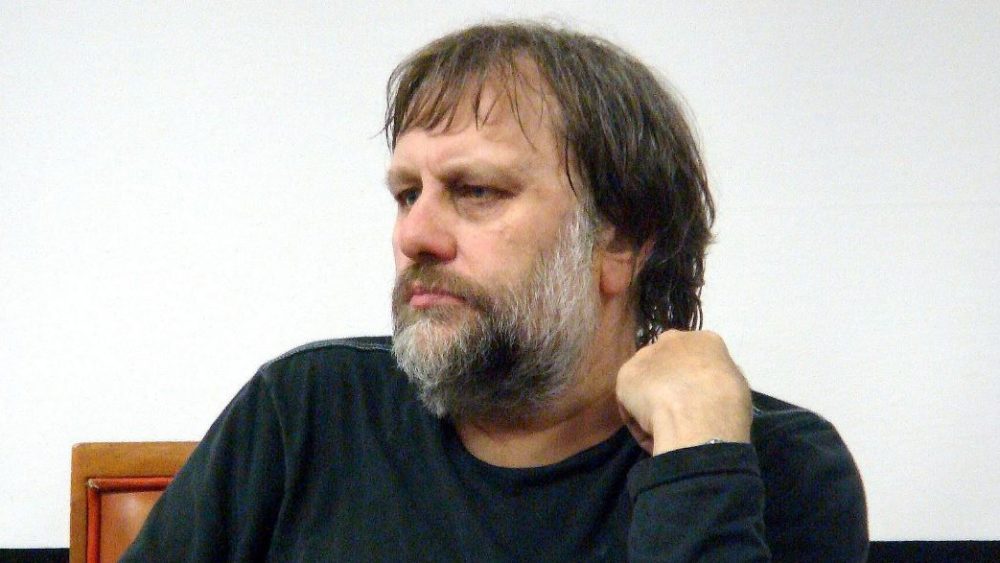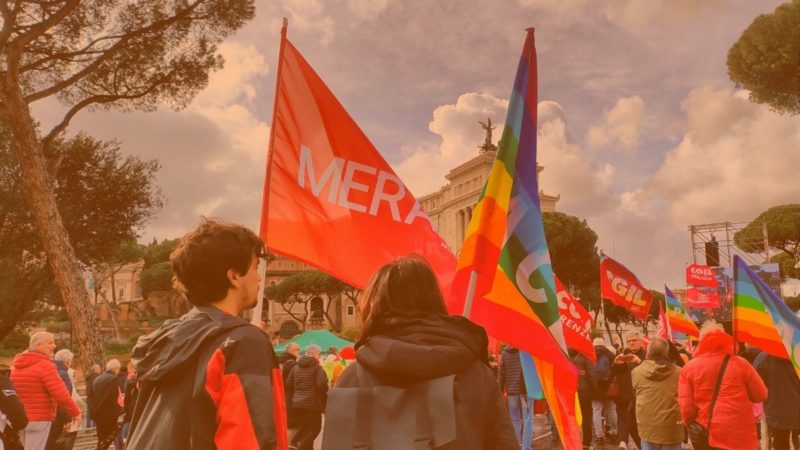Slavoj Žižek, a DiEM25 early signatory, casts his critical eye on the ‘disorder’ of the EU in the light of Brexit. He reminds us that “crises are painful and dangerous” but they are also “the terrain on which battles have to be waged and won”. He writes that the Brexit outcome offers us “a unique chance to react to the need for a radical change in a more appropriate way, with a project that will break the vicious cycle of EU technocracy and nationalist populism.” In a manner reflecting fully the DiEM25 manifesto, he concludes that” “The true division of our heaven is not between anaemic technocracy and nationalist passions, but between their vicious cycle and a new pan-European project which will addresses the true challenges that humanity confronts today.”
Late in his life, Freud asked the famous question “Was will das Weib?”, “What does a woman want?”, admitting his perplexity when faced with the enigma of the feminine sexuality. A similar perplexity arouses today, apropos the Brexit referendum: what does Europe want?
The true stakes of this referendum become clear if we locate it into its larger historical context. In Western and Eastern Europe, there are signs of a long-term re-arrangement of the political space. Till recently, the political space was dominated by two main parties which addressed the entire electoral body, a Right-of-centre party (Christian-Democrat, liberal-conservative, people’s…) and a Left-of-centre party (socialist, social-democratic…), with smaller parties addressing a narrow electorate (ecologists, neo-Fascists, etc.). Now, there is progressively emerging a one party which stands for global capitalism as such, usually with relative tolerance towards abortion, gay rights, religious and ethnic minorities, etc.; opposing this party is a stronger and stronger anti-immigrant populist party which, on its fringes, is accompanied by directly racist neo-Fascist groups. The exemplary case is here Poland: after the disappearance of the ex-Communists, the main parties are the “anti-ideological” centrist liberal party of the ex-prime-minister Donald Tusk and the conservative Christian party of Kaczynski brothers. The stakes of Radical Center today are: which of the two main parties, conservatives or liberals, will succeed in presenting itself as embodying the post-ideological non-politics against the other party dismissed as “still caught in old ideological specters”? In the early 90s, conservatives were better at it; later, it was liberal Leftists who seemed to be gaining the upper hand, and now, it’s again the conservatives.
The anti-immigrant populism brings passion back into politics, it speaks in the terms of antagonisms, of Us against Them, and one of the signs of the confusion of what remains of the Left is the idea that one should take this passionate approach from the Right: “If Marine le Pen can do it, why we should also not do it?” So one should return to strong Nation-State and mobilize national passions… a ridiculous struggle, lost in advance.
So what does Europe want? Basically, Europe is caught into a vicious cycle, oscillating between the Bruxelles technocracy unable to drag it out of inertia, and the popular rage against this inertia, a rage appropriated by new more radical Leftist movements but primarily by Rightist populism. The Brexit referendum moved along the lines of this new opposition, which is why there was something terribly wrong with it. To see this, one should only look at the strange bedfellows that found themselves together in the Brexit camp: right-wing “patriots,” populist nationalists fuelled by the fear of immigrants, mixed with desperate working class rage… is such a mixture of patriotic racism with the rage of “ordinary people” not the ideal ground for a new form of Fascism?
The intensity of the emotional investment into the referendum should not deceive us, the choice offered obfuscated the true questions: how to fight “agreements” like TTIP which present a real threat to popular sovereignty, how to confront ecological catastrophes and economic imbalances which breed new poverty and migrations, etc. The choice of Brexit means a serious setback for these true struggles – suffice it to bear in mind what an important argument for Brexit was the “refugee threat.” The Brexit referendum is the ultimate proof that ideology (in the good old Marxist sense of “false consciousness”) is well and alive in our societies. For example, the case of Brexit exemplifies perfectly the falsity of the calls to restore national sovereignty (the “British people themselves, not some anonymous and non-elected Brussels bureaucrats, should decide the fate of the UK” motif):
“At the heart of the Brexit is a paradox worth articulating! England wants to withdraw from the bureaucratic, administrative control of Brussels, control seen as compromising its sovereignty, in order to be better able to organize the dismantling of its sovereignty (by way of more radical submission to the logic of global capital) on its own. Does this not have the markings of the death drive? The organism wants to die in its own way, on its own terms. This is the paradox at the heart of American Republican thinking: we want to ‘take back our country’ in order to be better able to submit it and pretty much all of life to the logic of the market.”(Eric Santner, personal communication)
Is this paradox not confirmed by a quick look at the conflicts between the UK and the EU in the past decades? When they concerned workers’ rights, it was the EU which demanded limiting the weekly work hours, etc., and the UK government complained that such a measure will affect the competitiveness of the British industry… In short, the so much vilified “Brussels bureaucracy” was also a protector of minimal workers’ rights – in exactly the same way as it is today the protector of the rights of the refugees against many “sovereign” nation-states which are not ready to receive them.
When Stalin was asked in the late 1920s which deviation is worse, the Right one or the Leftist one, he snapped back: “They are both worse!” Was it not the same with the choice British voters were confronting? Remain was “worse” since it meant persisting in the inertia that keeps Europe mired down. Exit was “worse” since it made changing nothing look desirable. In the days before the referendum, there was a pseudo-deep thought circulating in our media: “whatever the result, EU will never be the same, it will be irreparably damaged.” However, it’s the opposite which is true: nothing really changed, just the inertia of Europe became impossible to ignore. Europe will again lose time in long negotiations among the EU members which will continue to make any large-scale political project unfeasible. This is what those who oppose Brexit didn’t see: shocked, they now complain about the “irrationality” of the Brexit voters, ignoring the desperate need for change that the vote made palpable.
For this reason, one should fully support the EU stance that the UK withdrawal should be enacted as fast as possible, without any long preliminary consultations. Understandably, the Brexit partisans in the UK now want have a cake and eat it (or, as a commentator viciously remarked, they want a divorce which will still allow them to share the marital bed). They desperately want to strike a middle road (Boris Johnson’s proposal that the UK should maintain free access to the common market was quite appropriately dismissed as a pipe dream).
The confusion that underlies the Brexit referendum is not limited to Europe: it is part of a much larger process of the crisis of “manufacturing democratic consent” in our societies, of the growing gap between political institutions and popular rage, the rage which gave birth to Trump as well as to Sanders in the US. Signs of chaos are everywhere – a couple of days ago, the debate of the gun control in the US congress turned into a banana republic chaos, with congressmen involved in rough-and-tumble that we usually associate with Third World countries… Is this a reason to despair?
Recall Mao Ze Dong’s old motto: “Everything under heaven is in utter chaos; the situation is excellent.” A crisis is to be taken seriously, without illusions, but also as a chance to be fully exploited. Although crises are painful and dangerous, they are the terrain on which battles have to be waged and won. Is there not a struggle also in heaven, is the heaven also not divided – and does the ongoing confusion not offer a unique chance to react to the need for a radical change in a more appropriate way, with a project that will break the vicious cycle of EU technocracy and nationalist populism? The true division of our heaven is not between anemic technocracy and nationalist passions, but between their vicious cycle and a new pan-European project which will addresses the true challenges that humanity confronts today.
In his Notes Towards a Definition of Culture, T.S.Eliot remarked that there are moments when the only choice is the one between heresy and non-belief, when the only way to keep a religion alive is to perform a sectarian split from its main corpse. This is what has to be done today. Now that, in the echo of the Brexit victory, calls for other exits from EU are multiplying all around Europe, the situation calls for such a heretic project – who will grab the chance? Unfortunately, not the existing Left which is well-known for its breath-taking ability to never miss a chance to miss a chance…
Volete essere informati delle azioni di DiEM25? Registratevi qui!




